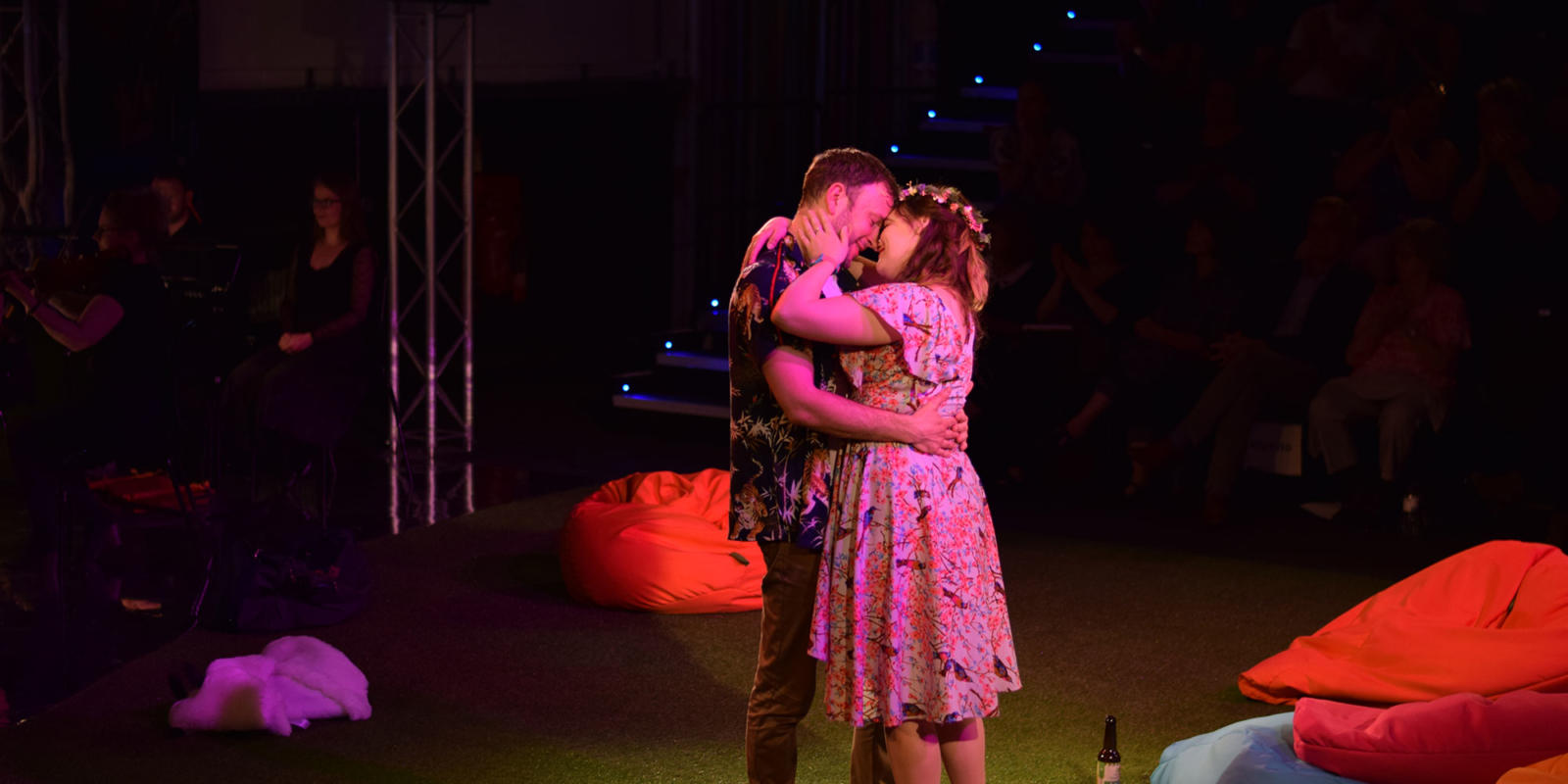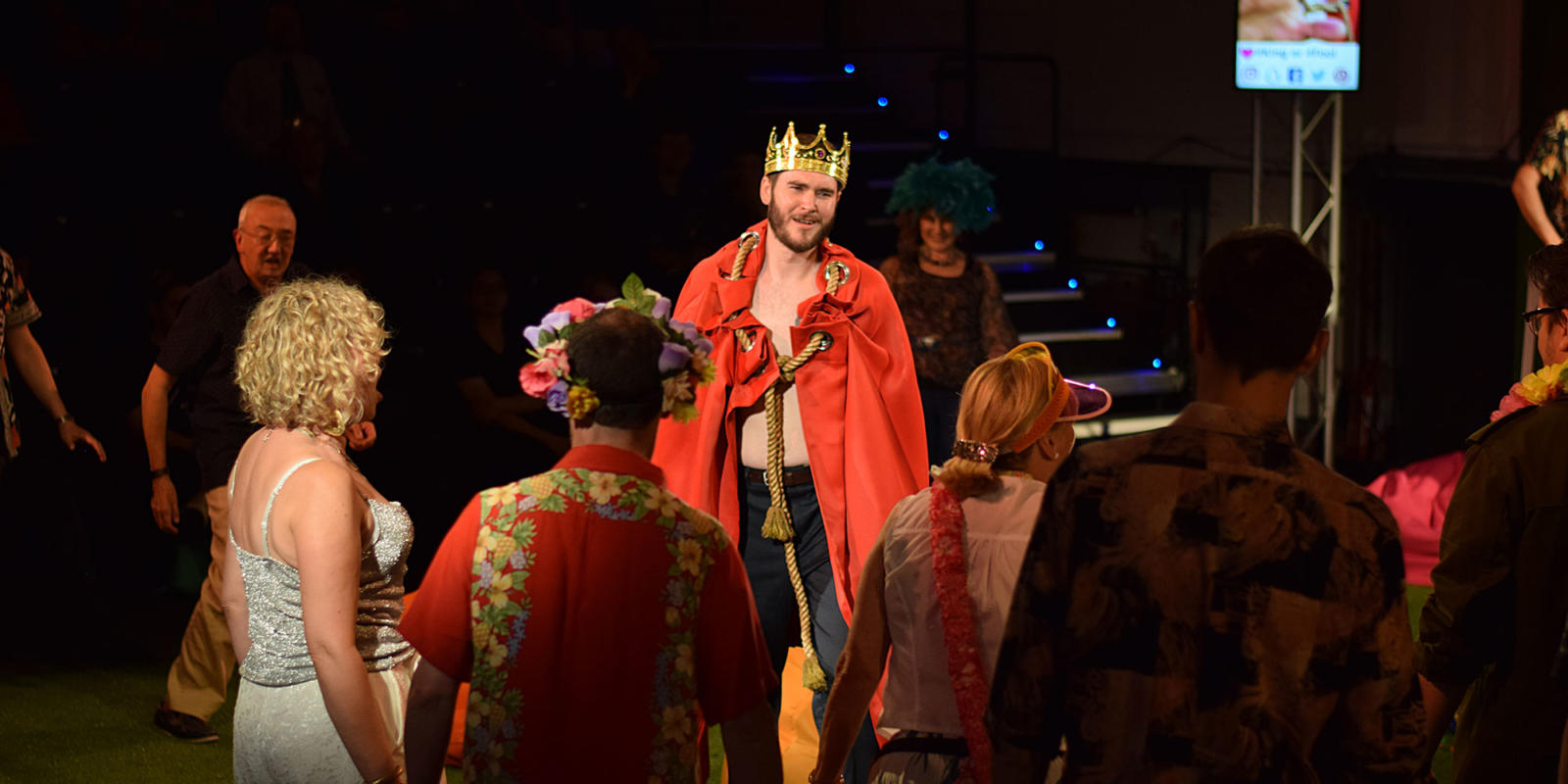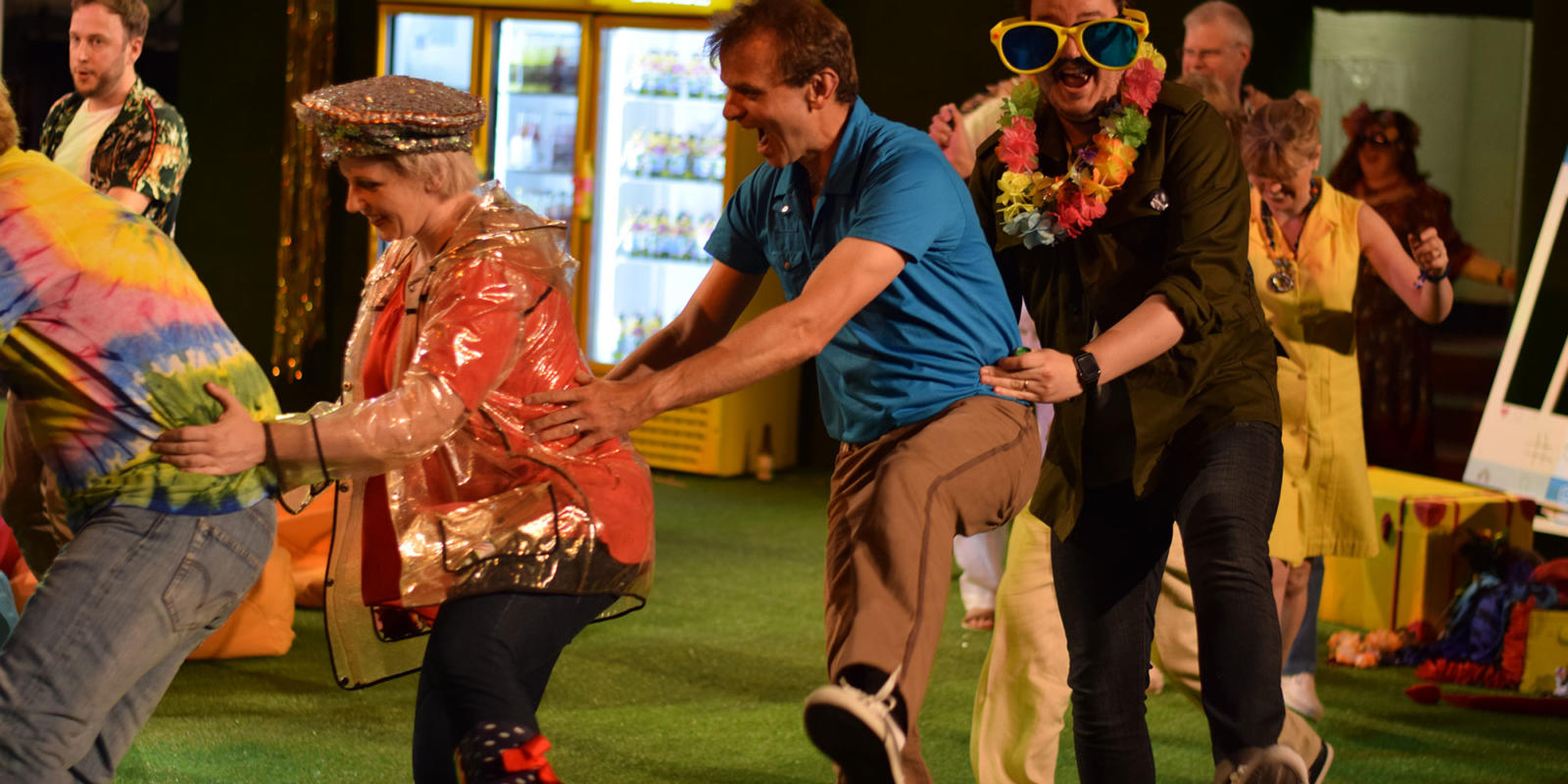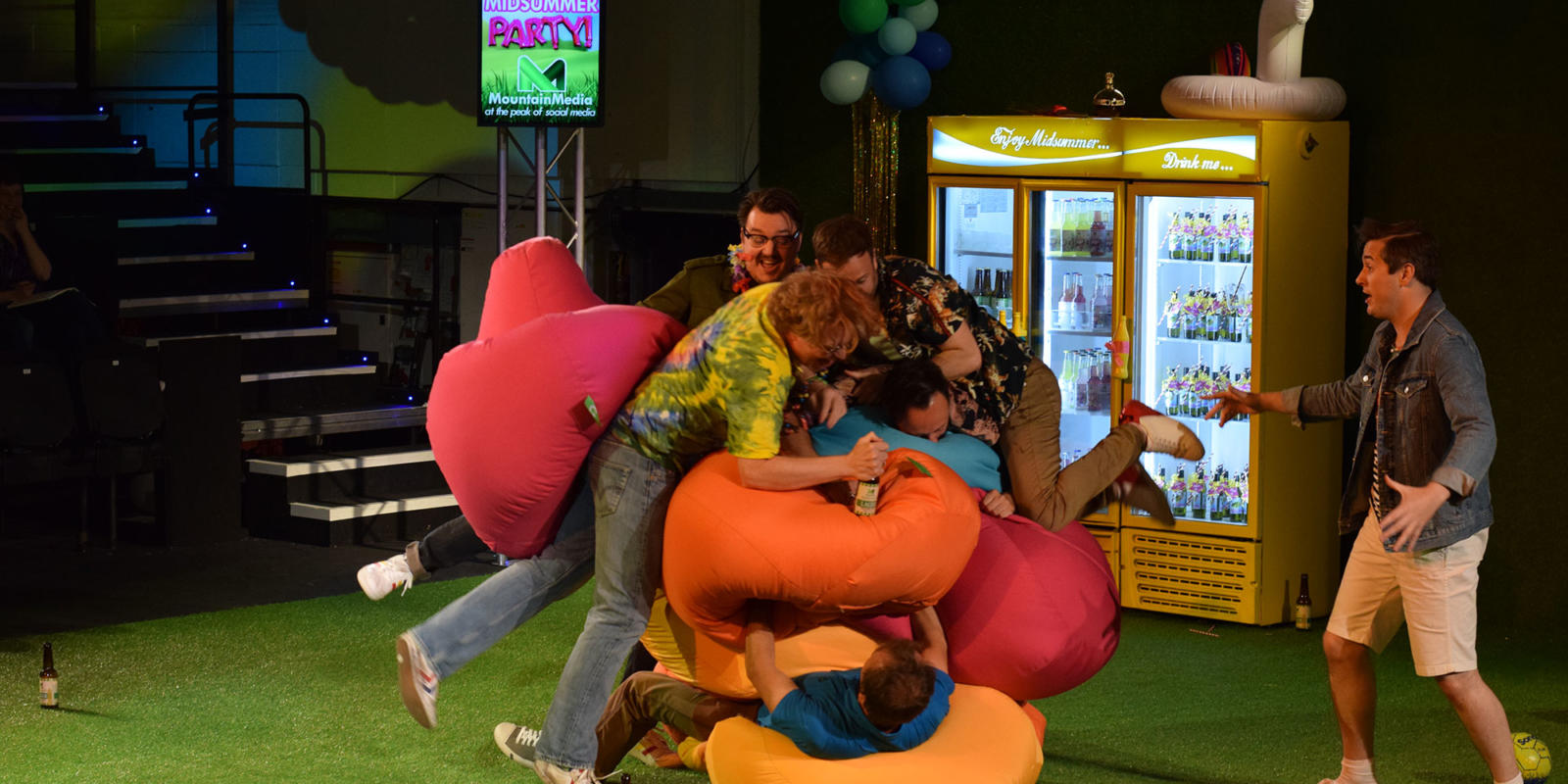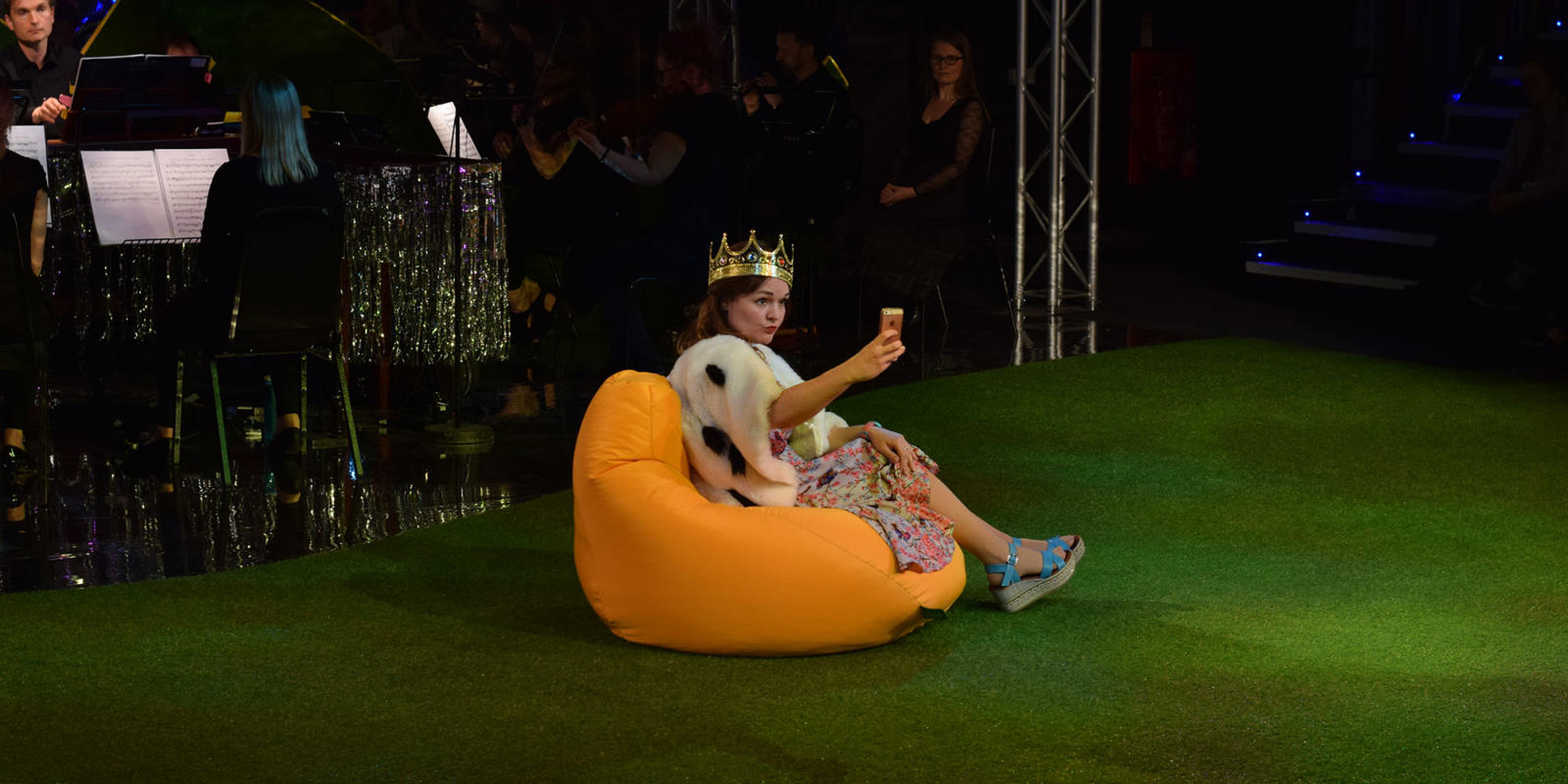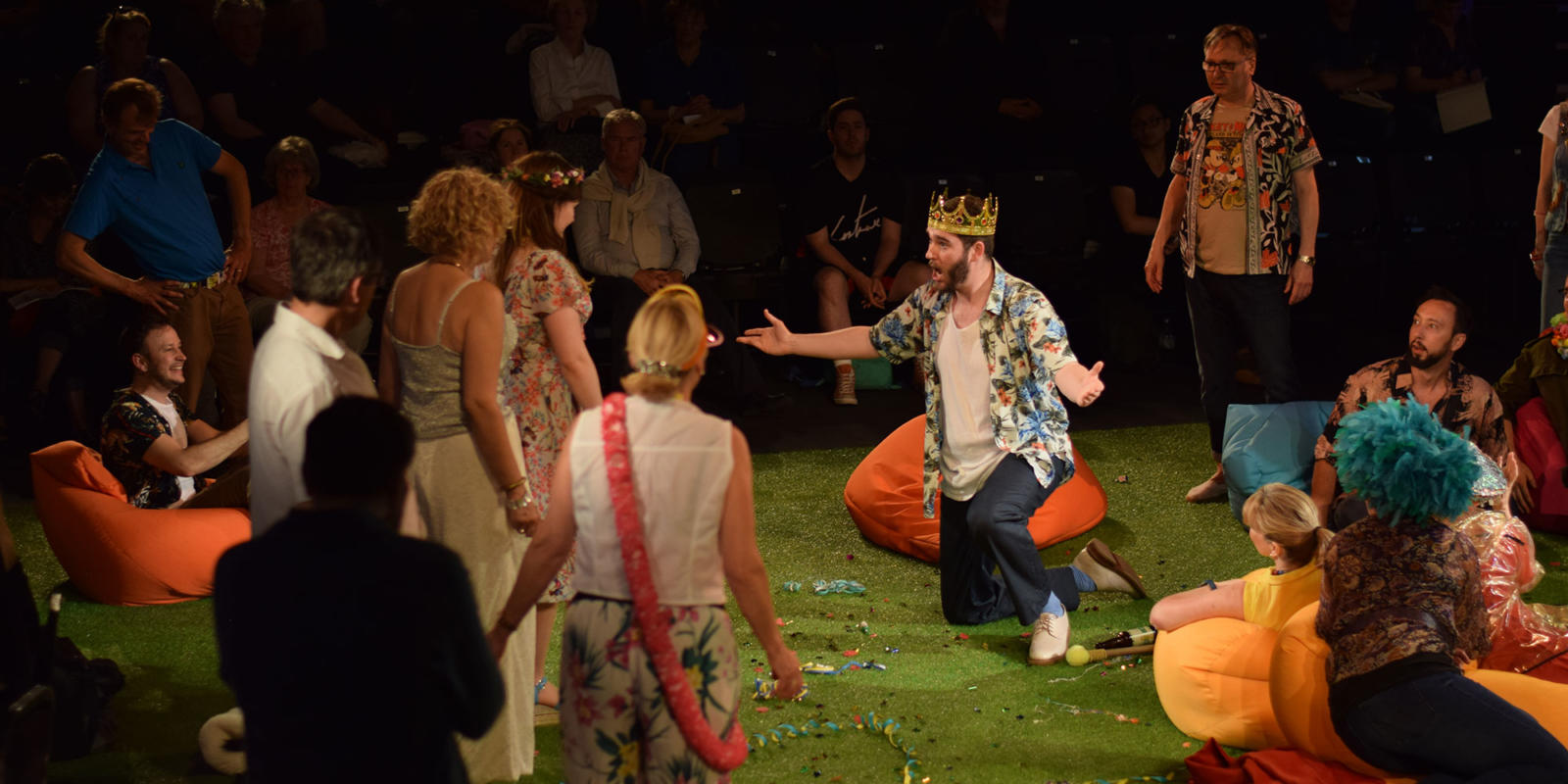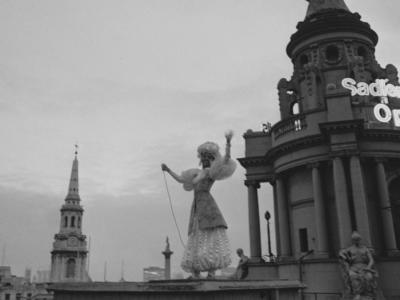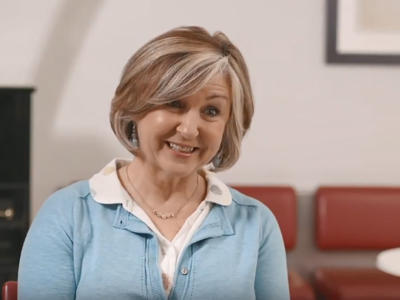50 years at the London Coliseum
In 1967, ENO (then known as Sadler’s Wells Opera until 1974) was destined to take up residence at a new national theatre and opera house on the South Bank. The Government, however, withdrew support for the opera house part of the scheme at short notice and opera company manager Stephen Arlen set to work to find a theatre. After intense negotiations and fundraising he signed an initial ten-year lease for the London Coliseum.
The Sadler’s Wells Opera company opened at the London Coliseum on 21 August 1968 with a revival of Don Giovanni, conducted by Leonard Hancock, directed by Sir John Gielgud and designed by Derek Jarman.
Since 1968, ENO has presented distinctive, pioneering, iconic and unforgettable opera productions at London’s largest theatre.
Pioneering
Over the last 50 years the English National Opera has commissioned more than a dozen new operas, presented 28 world premieres and 19 UK premieres.
Premieres range from Iain Hamilton’s The Royal Hunt of the Sun (1977), Anna Karenina (1981) and Harrison Birtwistle’s The Mask of Orpheus (1986) to David Sawer’s From Morning to Midnight (2001), Julian Anderson’s Thebans (2014), Nico Muhly’s Marnie (2017) and Iain Bell’s Jack The Ripper: The Women of Whitechapel (2019).
ENO has developed an audience for the works of Philip Glass (Akhnaten UK premiere 1985, Satyagraha London Premiere 2007 & The Perfect American UK Premiere 2007) and John Adams (Nixon in China 2000, Doctor Atomic UK Premiere 2006, The Death of Klinghoffer UK Premiere 2012 & The Gospel According to the Other Mary World Stage Premiere 2014).
Video
Video
Janacek
We have given the UK premieres of Katya Kabanova (1951), The Makropulos Case (1964),Osud (1984) and The Adventures of Mr Brouček (1978).
Handel
As the ‘House of Handel’ ENO has continually promoted Handel through nine new productions of the composer’s works over the last 30 years. The standard was set by John Copley’s production of Julius Caesar (1979) and Nicholas Hytner’s production of Xerxes (1985) and continued through to the 2009 Olivier Award-winning production of Partenope.
Handel’s Julius Caesar is just one example of operas based on people from history. Take a look at some more examples of operas based on real people and events.
Video
Britten
British composer Benjamin Britten’s work has been frequently presented including acclaimed productions of A Midsummer Night’s Dream, Peter Grimes, The Turn of the Screw and Death in Venice.
- Want to find out more about Britten’s Turn of the Screw? Get to know the opera better with our guide.
- Listen to a lively conversation around Britten’s Peter Grimes with members of ENO orchestra and Britten specialist, Philip Reed
In September 2018, ENO performed Britten’s operetta Paul Bunyan at Wilton’s Music Hall.
Operettas
Our most performed operettas at the London Coliseum are those from the pens of Gilbert and Sullivan and we are proud to have presented six G&S operetta titles over the last 50 years. These include Iolanthe and The Pirates of Penzance with the most performed title being The Mikado. Other favourite operettas include Lehár’s The Merry Widow and Offenbach’s Orpheus in the Underworld.
Want to know more about operetta? Read our beginners guide to some of the best-loved operettas around.
Video
Distinctive
In recent times ENO has established the practice of working with directors from outside the world of traditional opera. These relationships have produced successes with both critics and audiences alike.
Many have won or been nominated for awards including Anthony Minghella for Madam Butterfly (2006), Terry Gilliam for Benvenuto Cellini (2015) and Phelim McDermott for Akhnaten (2017). Mike Leigh’s production of The Pirates of Penzance (2015) broke all previous box office records for UK opera cinema-event releases on its live cinema broadcast.
ENO continues to stage different musical styles and has from the 1980s produced musicals including Pacific Overtures (1987), On the Town (2005), Candide (2008) and, in partnership with Grade Linnit, Sweeney Todd: The Demon Barber of Fleet Street (2015), Sunset Boulevard (2016), Carousel (2017) and Chess (2018).
Video
During the 2000s, ENO continued to expand the view of opera by staging oratorios and other choral works as operatic performances. These include Bach’s St. John Passion, Verdi’s Requiem, Tippett’s A Child of Our Time and Handel’s Jephtha and Messiah. In 2018 a staging of War Requiem will honour the anniversary of the end of the First World War.
Video
Outside work
Our belief in developing talent both in and outside of the London Coliseum has driven forward the staging of productions outside of the theatre from Ambika P3 to the Young Vic. We recently launched ENO Studio Live, an initiative which brings operas to smaller, intimate spaces, and gives upcoming artists and members of the ENO Chorus principal roles. This venture was launched with Jonathan Dove’s The Day After, and has since allowed us to put on performances of Gilbert and Sullivan’s Trial by Jury and Handel’s Acis and Galatea.
Find out a bit more about the composer of Acis and Galatea, Handel, in our quick introductory guide.
Iconic
Iconic productions and individuals have contributed to the legacy of the company including Lord Harewood, Conductor Charles Mackerras and Director Jonathan Miller.
Charles Mackerras
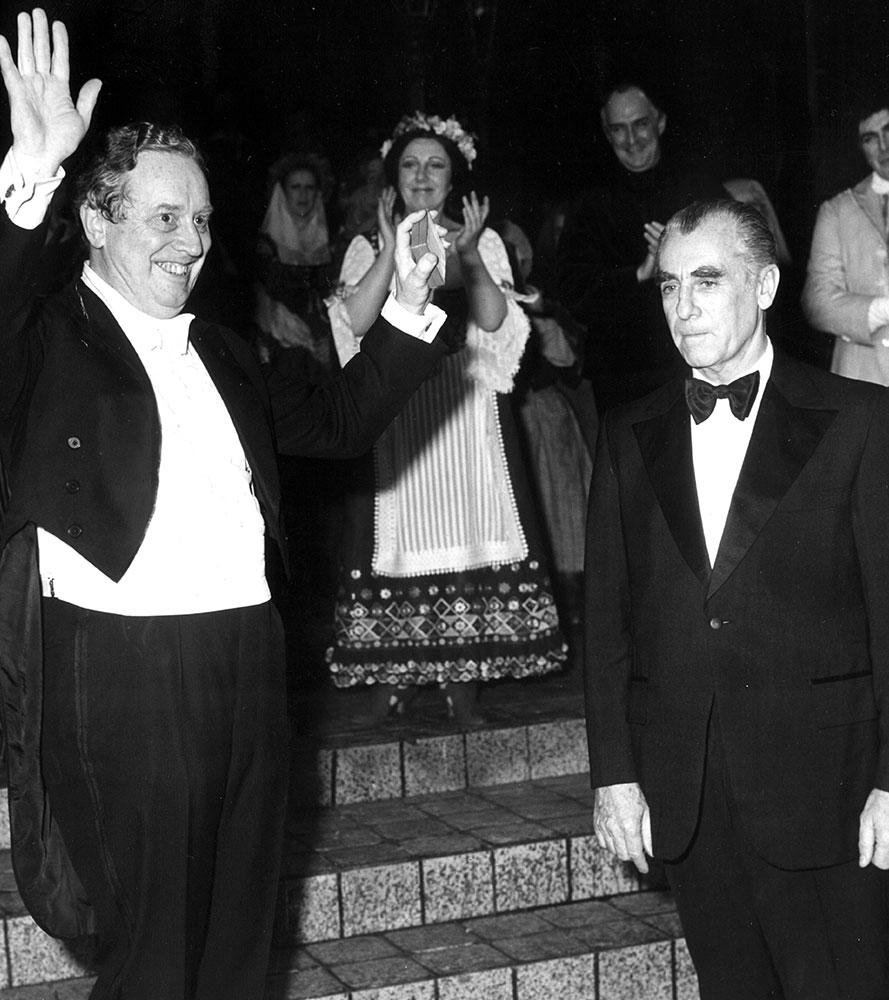
Lord Harewood
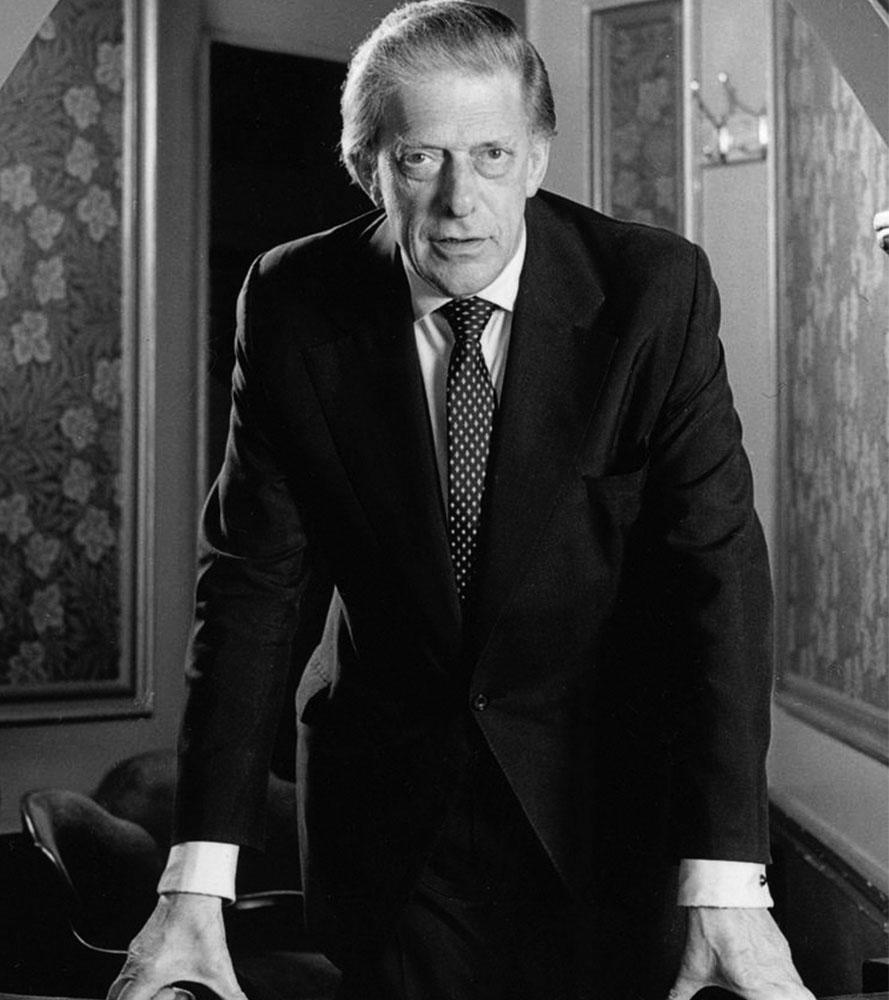
Charles Mackerras
Mackerras became ENO Musical Director in 1970. This coincided with ENO finalising the project to perform all 4 operas in Wagner’s Ring cycle over a four-year period. The productions were conducted by the legendary Wagnerian conductor Reginald Goodall, with a specially commissioned translation by Andrew Porter.
In 2012 ENO established the ENO Mackerras Conducting Fellowship celebrating his legacy. Recipients include Gergely Madaras, Fergus Macleod, Toby Purser and Matthew Waldren.
From August 2018, the Fellow will be Valentina Peleggi.
Lord Harewood
Lord Harewood became managing director of the then Sadler’s Wells Opera in 1972. He campaigned for the company’s name change in 1974 to English National Opera in recognition of its national significance. Harewood became chairman of the ENO board until 1995. He was president of ENO until his death in 2011. During his tenure, he forged great partnerships with directors, conductors and singers including Jonathan Miller, John Copley, Nicholas Hytner, Valerie Masterson, Josephine Barstow, Alan Opie, Lesley Garrett, Jane Eglan, Charles Mackerras and Mark Elder.
Harewood’s goal was to change the way British people thought about opera. His love for the art form and extraordinary knowledge about it ensured his success. Dedicated to nurturing talent both on and off-stage, ENO began a talent development programme for young singers. Subsequently named after Lord Harewood, the Harewood Artists programme launched in 1998 and has, since its inception, supported numerous singers to national and international careers.
Jonathan Miller
Jonathan Miller’s contribution to ENO cannot be underestimated. From The Marriage of Figaro in 1978 to The Elixir of Love in 2010, Miller has provided ENO with fifteen productions, many of them becoming staples of our repertoire.
Video
Video
Miller’s The Barber of Seville (1987) has had 12 revivals, just one less than his production of The Mikado (1986) and three less than his iconic Mafioso-style Rigoletto (1982). He has won the Olivier Award for Outstanding Achievement in Opera for his production of Carmen (1996) and his production of The Turn of the Screw was part of a tour to the Soviet Union in 1990. The 2018/19 season will see Jonathan Miller’s iconic production of La bohème returning to the London Coliseum, marking the 40th anniversary of the director’s ENO debut.
Video
Video
Unforgettable Experiences
ENO became the first British opera company to tour the United States; the tour in 1984, consisted of 360 people performing Gloriana, War and Peace, The Turn of the Screw, Rigoletto and Patience.
In 1992 ENO acquired the freehold to the London Coliseum on the condition that essential restoration of the building take place. A massive campaign was launched to secure the funds for the refurbishment and in 2000 we embarked on a four-year restoration programme supported by National Heritage Lottery Fund, English Heritage, The National Lottery through Arts Council England, Vernon and Hazel Ellis and a number of generous trust and individual donors. The magnificently restored theatre re-opened in 2004 for the benefit of all.
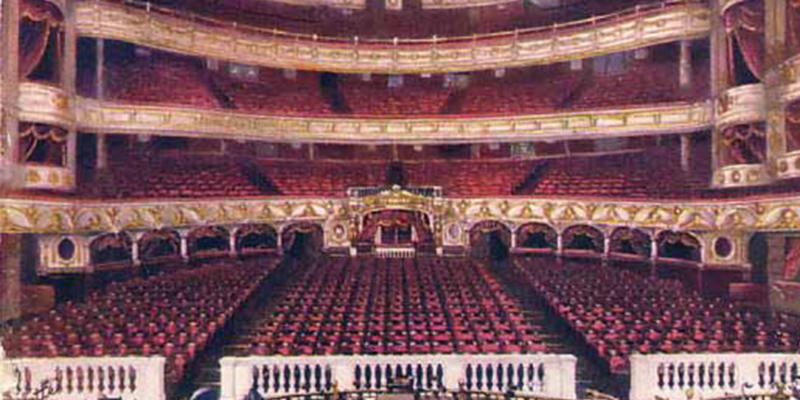
How the London Coliseum looks before its major restoration
ENO has matched its commitment to new work with its commitment to new audiences and developed a number of schemes to enable everyone to be able to attend or engage with its work. Named after ENO’s founder, Lilian Baylis, the creation of the ENO Baylis department in 1985 (re-named ENO Engage in 2022) has enabled the company to create unforgettable experiences for those who may not think that opera was for them.
From 2006 the company has offered the under 30’s a way of accessing opera at a reduced price through its Access All Arias scheme and in 2012 introduced Opera Undressed events, aimed at attracting new audiences to opera.
ENO was founded on the belief that opera of the highest quality should be accessible to everyone and we continue to believe in opera for all. And we will be celebrating the last 50 years of opera in residence with a very special Gala in October.
Find out more about ENO Engage…
Video
To celebrate 50 years of ENO at the London Coliseum, we have also been working on the #50YearsofOpera video project, for which we are asking familiar faces from ENO’s past and present to share their favourite memories of the London Coliseum.
For every week in 2018 you will have the chance to learn a little more about this wonderful building from those who have performed, worked, and attended countless performances here.
Enjoy the videos we’ve created as part of this project so far
Video

